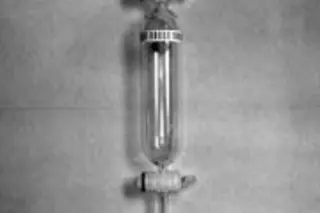Any idiot should be able to poison a plant. That's what Edward Calabrese thought in 1966 as a junior at Bridgewater State College in Massachusetts. He was in a plant physiology class at the time, and his lab group had been told to dose some peppermint with an herbicide called Phosfon. The idea was to measure how much a given dose stunted the plant's growth, thereby demonstrating a fundamental tenet of biology: The more you poison something, the sicker it gets. In Calabrese's case, though, the lesson backfired. Instead of shriveling, the crop grew green and luxuriant. "Either you treated the plants with the wrong chemical, or you mislabeled them," the professor said. "God forbid, you discovered something new." When Calabrese next tried to repeat the experiment, the peppermint shriveled as expected. But the professor had been right: Calabrese had discovered something new. When he sprayed the plants with a ...
Is Radiation Good For You?
The answer is yes but only in very small doses, says one of the country's most respected toxicologists. If he's right, environmental regulation will never be the same
More on Discover
Stay Curious
SubscribeTo The Magazine
Save up to 40% off the cover price when you subscribe to Discover magazine.
Subscribe













